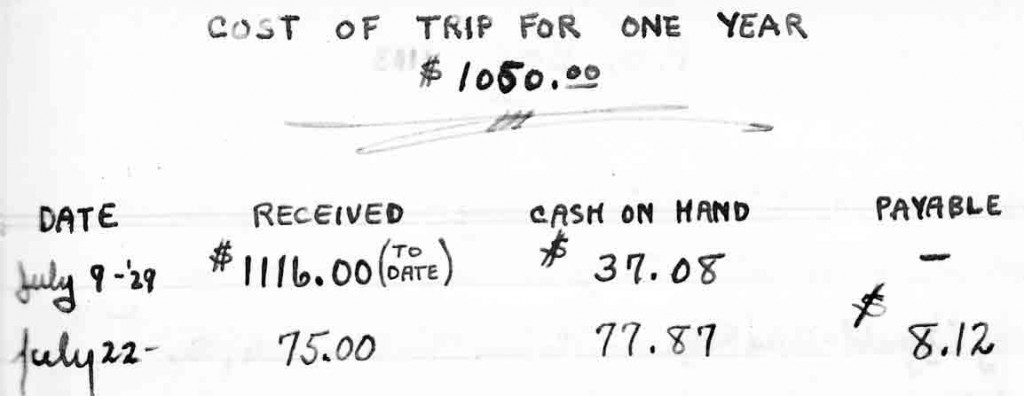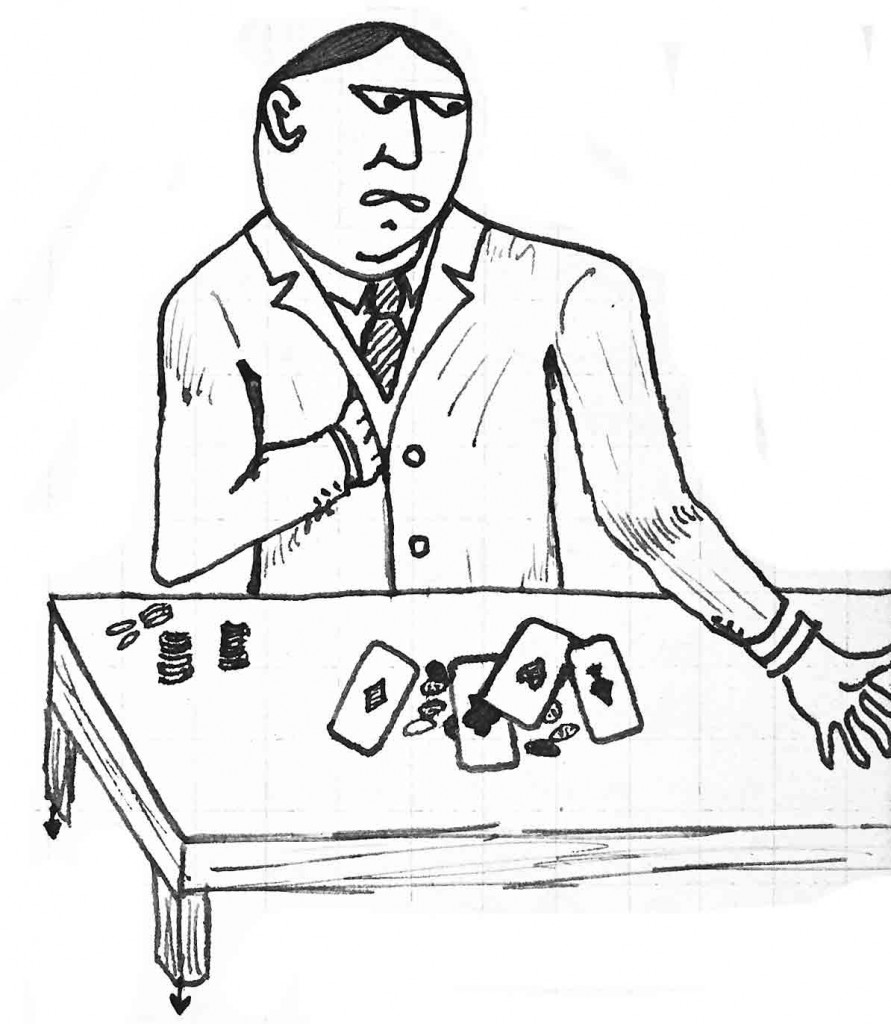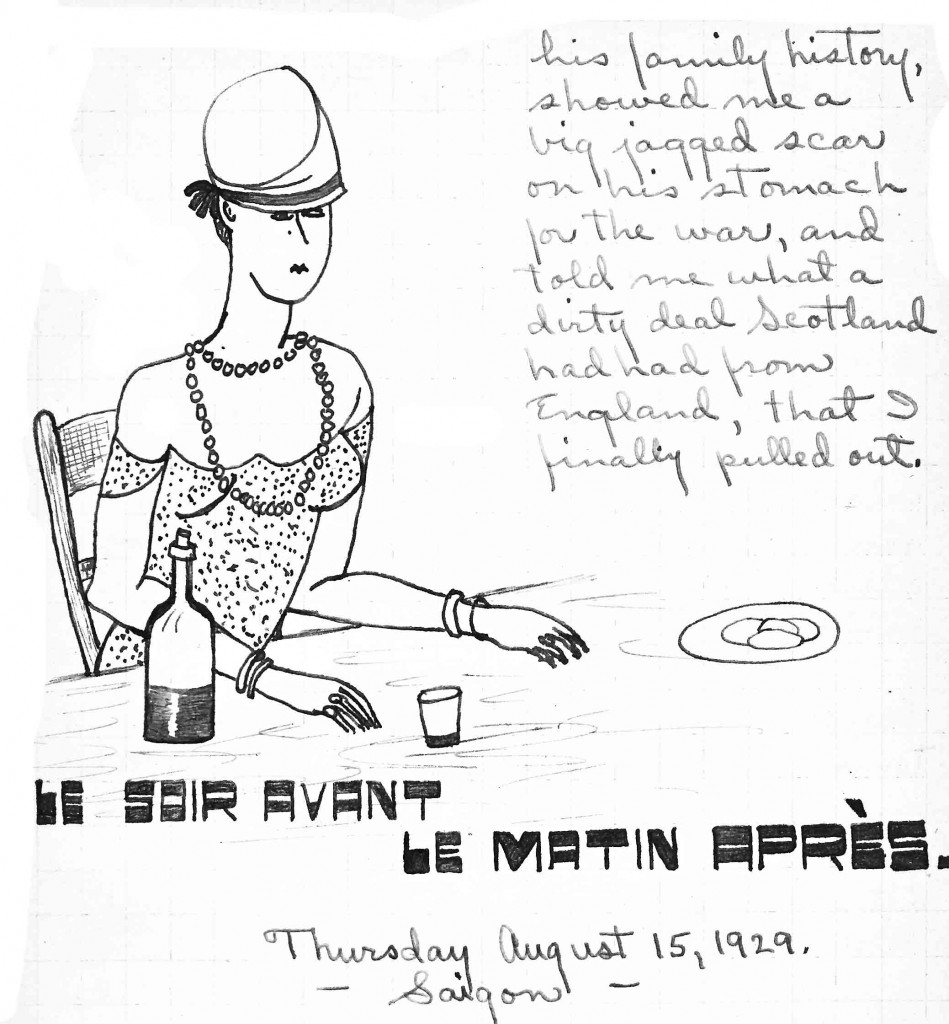Thursday, August 15, 1929
Two new instruments of torture have made their appearance in the neighborhood—a fife and a sax. But one victrola has moved out.
This being assumption day, most everything was closed here. Plenty of flowers were sold, but nothing else happened evidently. Not even mail.
 This evening the walk was into the native section near the market and station. This is a lively place after dark; many bright lights, crowds of people out for a walk, others thronging the sidewalks, stores, restaurants, etc. Some of the curio shops have interesting collections of brass—all sorts of Chinese objects and animals, Buddhas, etc. Then there are elaborate carved wooden screens inlaid with mother-of-pearl. Sometimes you see a shop with some objects chiseled from jade, etc. This work is probably done in China or Japan.
This evening the walk was into the native section near the market and station. This is a lively place after dark; many bright lights, crowds of people out for a walk, others thronging the sidewalks, stores, restaurants, etc. Some of the curio shops have interesting collections of brass—all sorts of Chinese objects and animals, Buddhas, etc. Then there are elaborate carved wooden screens inlaid with mother-of-pearl. Sometimes you see a shop with some objects chiseled from jade, etc. This work is probably done in China or Japan.
The American Consul didn’t leave when I thought he did, but is leaving tomorrow afternoon. If I only had the money I would go on the same boat for my two weeks here is up Saturday afternoon. As it is though, I shall probably be here another week.
There is something very attractive and easy-going about the atmosphere of Saigon I have not found elsewhere. When you look at the lights on the dark river or down a bright, wide boulevard where autos and riskshaws are coming and going, where the music and noise of cafés breaks the silence, there is something very charming and romantic in remembering that hardly before you leave the city’s limits, you are in a primitive country where live the primitive people in their thatch huts—those who toil in the rice fields day after day, who know no luxuries, whose clothes consist of a cloth tied about their middle and a straw hat. And a little farther away all sorts of wild animals roam. And still farther to the north in some of the northern mountains of Annam it is said to still be unsafe for white men due to the savages. Looked at in that light, this little spark of Paris set down in the heart of a wild largely uncivilized country of the East, it takes on new charms and interests. The French must LIVE, even if 9,000 miles from their native land.
